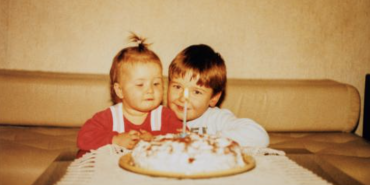Confessions of a Grieving Pastor

I wish somehow I could go back across the years and take back the insensitive things I said to grieving members of the congregations I pastored. It took the death of our son, Denny, and my subsequent descent into the pit of despair to even begin to understand the many ways grief can affect a person. If I had known, before Denny's death, what I know now, I would have been much more effective in helping grieving people deal with the horrible pain they experience after the death of a loved one.
Here are some of the things I wish I had known:
Grief takes much longer to process than anyone can imagine. When preparing to write Life After the Death of My Son: What I'm Learning, I quickly determined this would be the subject of the first chapter. I had no idea the length of time it takes a person to reconcile to the loss. There are no clear-cut steps or phases that grievers go through. The length of time will be determined by a number of factors: the relationship to that person or their family, the age of the person who died, and how they died.
Men and women tend to mourn differently. When our son Denny died suddenly from mononucleosis, Buelah and I were shocked, traumatized, and barely able to function. In the early days, we both cried until there seemed to be no more tears. Then, after a few weeks, I decided to return to my work while my wife stayed at home and mourned our son's death. I have come to see this difference between men and women can be characterized by the statement, "Women mourn while men replace."
A quick review of the Resurrection story reveals that it was the women who showed up at the tomb where Jesus had been laid, while the disciples were off someplace else. Men are taught from their earliest days, "Big boys don't cry!" So, as men, we believe tears are a sign of weakness, and we find it hard to give ourselves permission to grieve. These days, I am lot more comfortable with my tears, as well as the tears of others. I am glad we have the example of Jesus when He stood at the grave of His friend, Lazarus. Two words, "Jesus wept," carry more healing than most of us realize (John 11:35).
Grievers may feel they are losing their minds. It is common for grieving people to be so preoccupied with their loss that they forget names, miss appointments, forget to turn at a certain intersection, and much more! I had no idea this condition can continue for months and even years!
It is normal to feel anger toward God, the physicians, or the person we feel is responsible for the death. When a loved one dies, we often look for someone or something to blame. This is especially true in the sudden death of a young child. Grievers often voice the same words that Jesus spoke in His final agonizing moments on the cross, "My God, my God, why?" (Matthew 27:46)
Certain dates on the calendar can be painful reminders of our loss. Looking at the empty chair can be extremely painful when families meet together during the holidays. However, birth, death, and wedding anniversary dates can also be extremely painful. In our family, the death date of our son intensifies my pain while Denny's birthday ignites a fresh wave of grief for my wife. Along with these dates is what I call the "dread of the date." Grievers can see the "dreaded" dates looming on the horizon and feel their grief intensify as each day carries them closer to the day it happened. If I had it to do over, I would circle dates on next year's calendar to remind me of these dates for others. The circled date would prompt me to write a note or make a call so that we could talk about their loved one.
When grief is fresh, the less said, the better.
As a young pastor, I thought it was my duty to share a Bible verse about heaven, or give an explanation or possible reason for the death. In those days, I used Romans 8:28 as I tried to help grievers make sense of their loss. These days I follow the advice of one who encourages us to remember the three H's--hang around, hug the griever, and then hush up.
The church can be a place of great pain for those who grieve. Quite often grievers find it difficult, and even fearful, to re-enter the place of worship after the death of a loved one. Grievers often feel abandoned by God when they hear stories or sermons of miraculous answers to prayers and how someone else's life was spared. They are left wondering why God answered the prayers of others but not theirs. Quite often, grievers feel abandoned by their churches.
On the other hand, the church can provide wonderful opportunities for healing. In addition to the support offered at the visitation and funeral, the church can provide healing rituals for grievers as they mourn their loss. Pulpit flowers, Easter lilies, Christmas poinsettias, candles, and memorial web sites can be used to help remember the ones we have loved and lost. The key is to find some way to acknowledge the loss.
If I were starting ministry over again, I would spend less time telling grievers how they should feel.
Instead, I would try to step into their stories and ask them to teach me about their own grief journeys. I would listen closely, and let the grieved set the pace of their journeys. And, I would remember to pray for them long after the flowers are gone and grief sets in.
Dennis L. Apple is an associate pastor at College Church of the Nazarene in Olathe, Kansas. He is the author of Life After the Death of My Son: What I'm Learning, available at www.nph.com.
Holiness Today, November/December 2010
Join HT on Facebook.
Please note: This article was originally published in 2010. All facts, figures, and titles were accurate to the best of our knowledge at that time but may have since changed.




